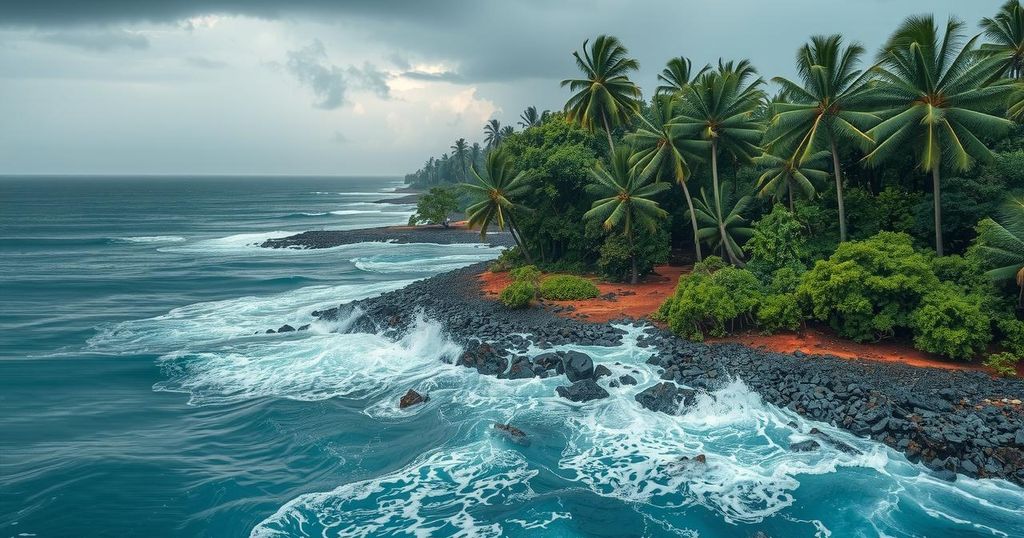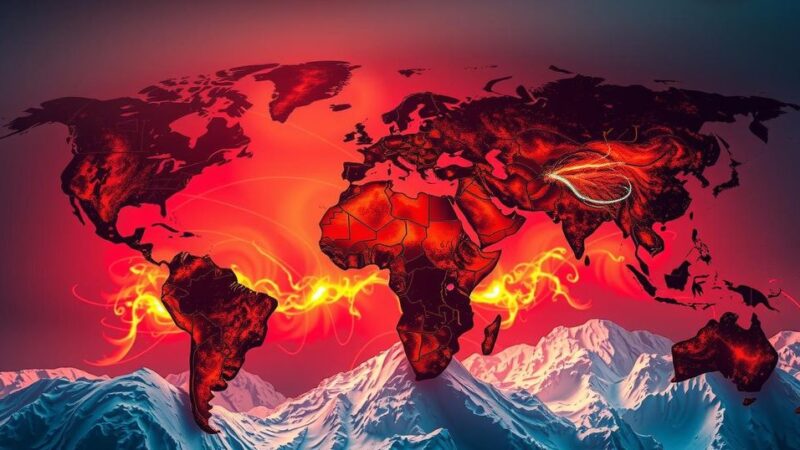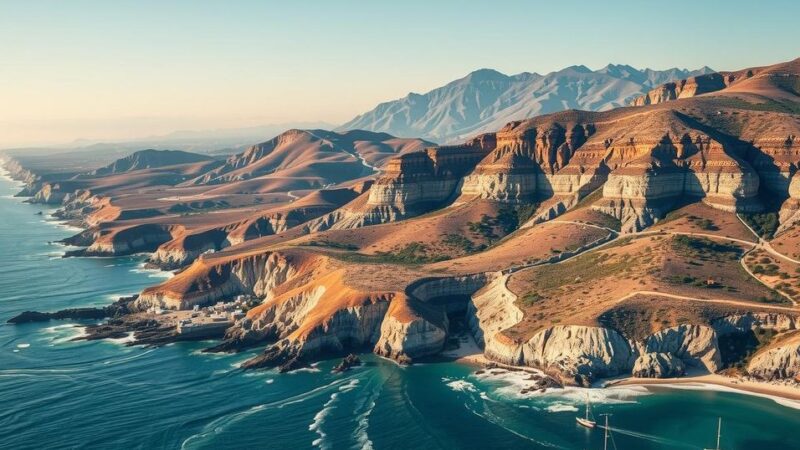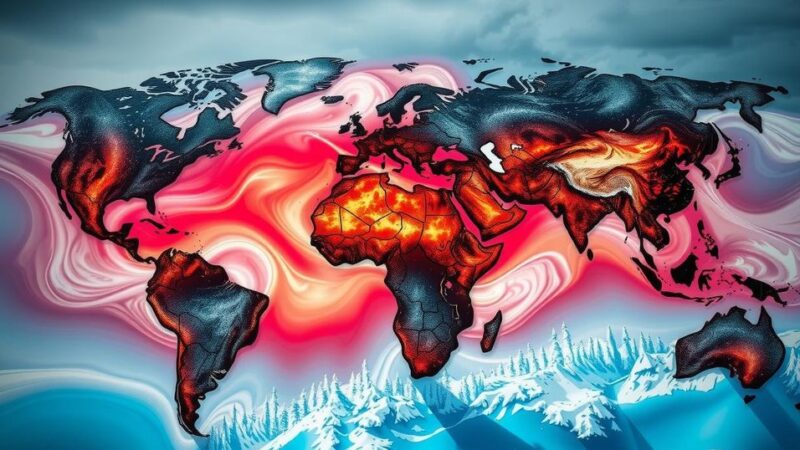Tropical Storm Dikeledi struck northern Mozambique after causing fatalities in Madagascar. It has been marked by destructive winds, heavy rainfall, and flood warnings from the National Institute of Meteorology. President Filipe Nyusi urged residents to seek shelter. The cyclone season is notably intense this year due to high sea surface temperatures, fueling concerns over climate change.
Tropical Storm Dikeledi made landfall in northern Mozambique on Monday, following its impactful pass through Madagascar, where it caused at least three fatalities. The storm intensified upon reaching Mozambique’s Nampula region, where destructive winds and heavy rainfall were reported, as stated by Meteo-France, the French weather administration. Consequently, Mozambique’s National Institute of Meteorology (INAM) issued flood warnings anticipating rainfall of up to 200 millimeters (nearly eight inches) within a 24-hour period and wind gusts reaching 180 kilometers (110 miles) per hour.
In light of the impending storm, President Filipe Nyusi has advised residents located in affected areas to take safety measures such as securing adequate shelter and provisions. “Go immediately to a safe shelter and stay there until the authorities give you further instructions,” he emphasized during parliamentary sessions in the capital, Maputo. The storm initially impacted Madagascar, primarily its northern region, leading to severe weather conditions including strong winds and torrential rains.
Meteo-France has warned of the possibility of Dikeledi striking Madagascar’s southwest coast again later in the week. This cyclone season, which typically runs from November to March in the Indian Ocean region, has been marked by elevated sea surface temperatures, nearing 30 degrees Celsius (86 degrees Fahrenheit), which contribute to heightened storm intensity. This phenomenon reflects broader changes associated with global warming, observed also in other oceanic regions such as the North Atlantic and the Pacific.
The annual cyclone season in the Indian Ocean occurs primarily from November to March, when climatic conditions favor the development of severe weather systems. This seasonal trend has been pronounced recently, with the frequency and intensity of storms tied to rising sea surface temperatures, attributed to climate change. The impact on regions such as Mozambique and Madagascar has been significant, leading to loss of life and property as evidenced by previous cyclones, including Cyclone Chido, which took numerous lives and caused extensive injuries.
In summary, Tropical Storm Dikeledi poses a substantial threat to northern Mozambique, following its damaging effects in Madagascar. With the government issuing urgent warnings for severe weather conditions, residents are urged to prioritize safety. The ongoing cyclone season coupled with rising ocean temperatures accentuates the need for preparedness against such natural disasters. Continued monitoring and timely advisories from meteorological authorities remain crucial to mitigate the risks associated with these formidable storms.
Original Source: www.barrons.com







